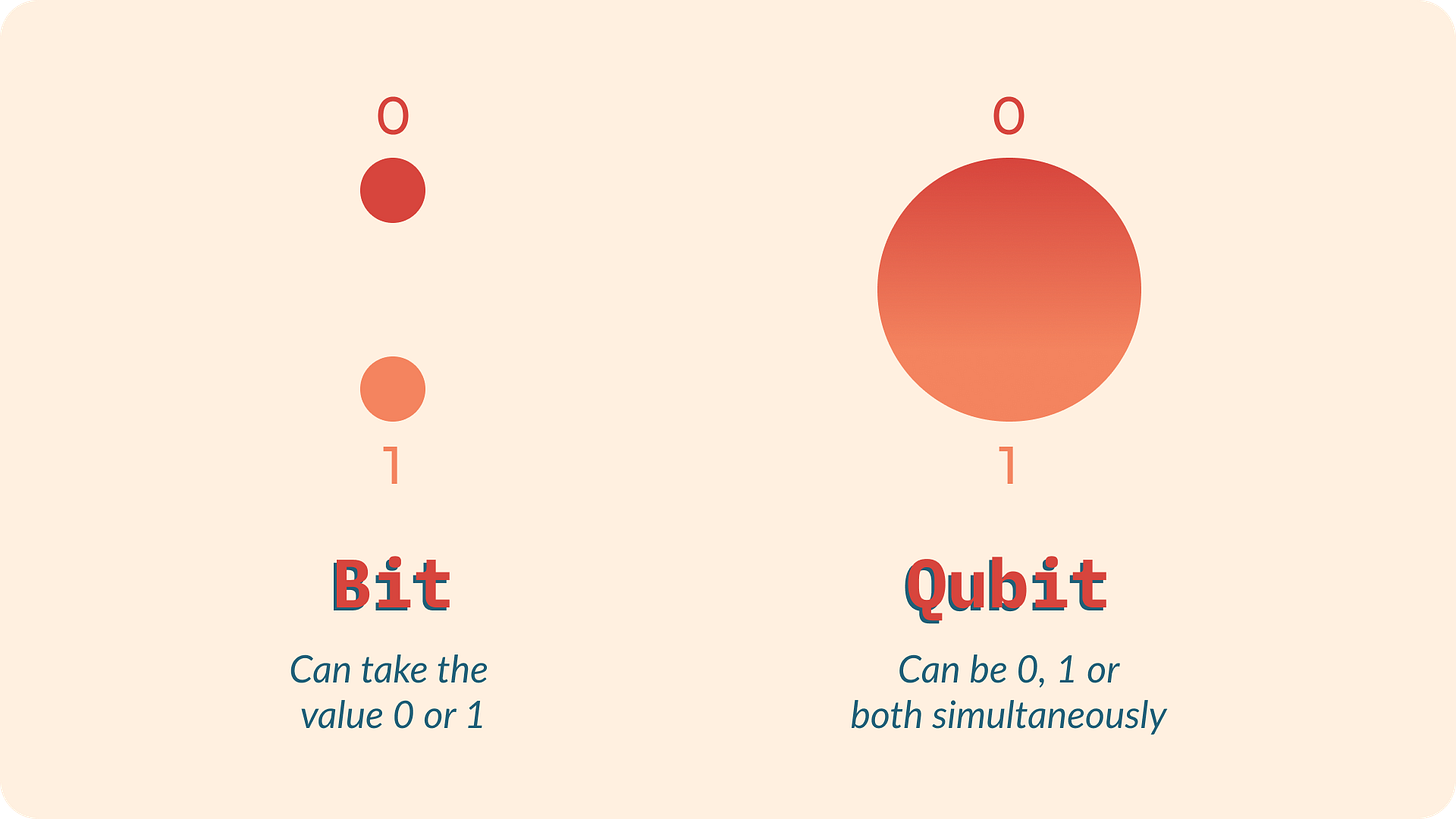Quantum Computers explained in exactly 500 words
What are they? Where can you buy one?
Quantum Computers are the hippies of the computing world.
They are strange, smart, and we're all struggling to figure them out.
Quantum Computers aren’t like regular computers.
The foundational unit of a regular computer is a bit made of silicon. Each bit can take the value of 0 or 1.
Quantum computers aren’t made of bits. They are made of Quantum bits, also known as Qubits. Qubits are incredibly tiny things - sometimes consisting of a single electron. Qubits are also weird AF.
Instead of behaving like a regular bit that takes the value 0 or 1, Qubits have a more fluid, non-binary identity (they'd probably vote for Biden). Qubits can take the value of 0, 1, or both, at the same time! This is known as a Superposition.
Multiple Qubits can also be Entangled, allowing for the state of one Qubit to be predicted by looking at the state of another Qubit.
Weird, right?
If you're confused, don't fret. Qubits are built out of particles so tiny that they don't follow the laws of the world you're used to. Instead, they follow the laws of the Quantum world.
The Quantum world exists where things are either really small, really isolated, or really cold. In this world, it is normal for particles to be weird. It’s like a tiny version of Burning Man.
If this sounds like magic to you, you're in good company - even scientists don't properly understand why particles in the Quantum world behave the way they do. Einstein famously called the phenomenon of Entanglement "a spooky action at a distance."
Why are Quantum Computers better?
First, a recap of what makes Qubits weird:
Superposition: Qubits take the value 0, 1, or both simultaneously
Entanglement: Multiple Qubit states can be correlated even when the Qubits are separated
Since Qubits can be in multiple interconnected states simultaneously, Quantum computers can explore multiple paths to solve problems simultaneously, instead of exploring one path at a time.
Quantum computing is extremely promising for tasks that involve a large number of permutations. Tasks that would take thousands of years for regular computers to perform could take minutes for a Quantum Computer. Simulating complex particles, solving route optimization problems, and optimizing financial portfolios are areas that Quantum Computing will revolutionize.
Just like it would've been impossible for someone in 1980 to predict the impact of the internet, it is impossible to predict the impact of Quantum Computers.
We only know it'll be massive.
Where can I buy a Quantum Computer?
For now, you can't buy a Quantum Computer on Amazon. They are expensive and difficult to make, and only a few large companies and universities own them.
However, you can access IBM's Quantum Computer via the cloud.
Quantum Computing technology is still in its infancy, and it'll take decades for Quantum Computers to become mainstream. Useful algorithms for Quantum Computers require millions of Qubits, but the most powerful Quantum Computer today only has 128 Qubits.
There's still a long way to go.
That’s it for the inaugural issue of Complexity Condensed! I hope you liked it.
If you did, you can subscribe to get posts like these delivered to your inbox every Wednesday.









I really like what you're building here, Louis!